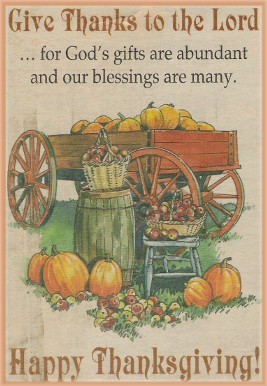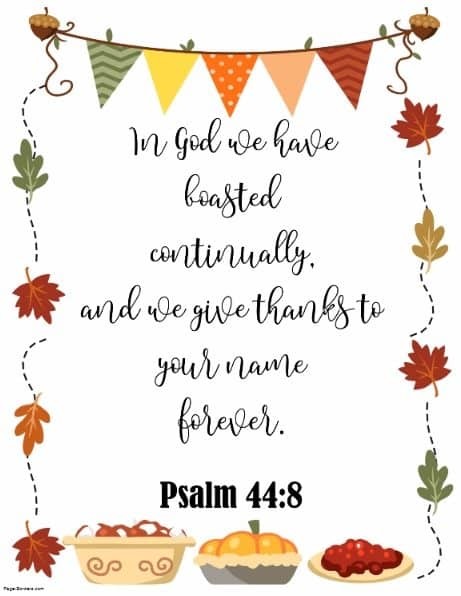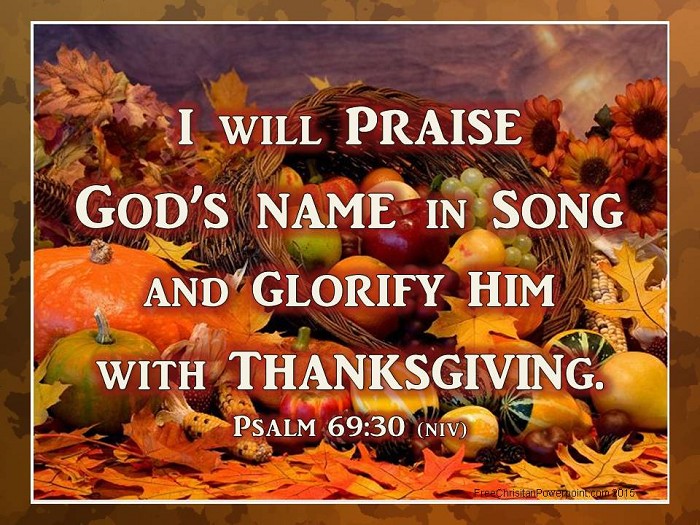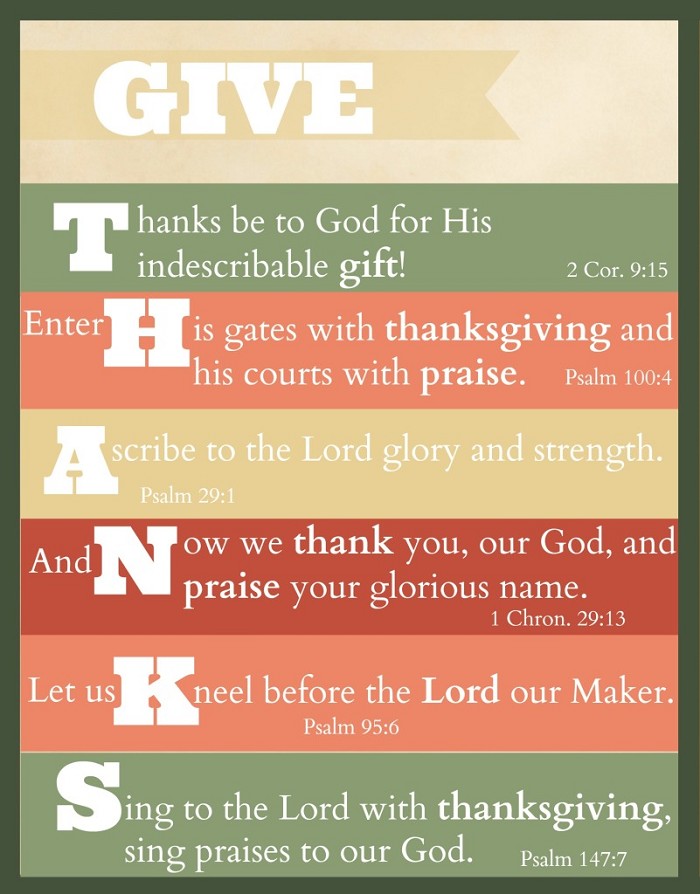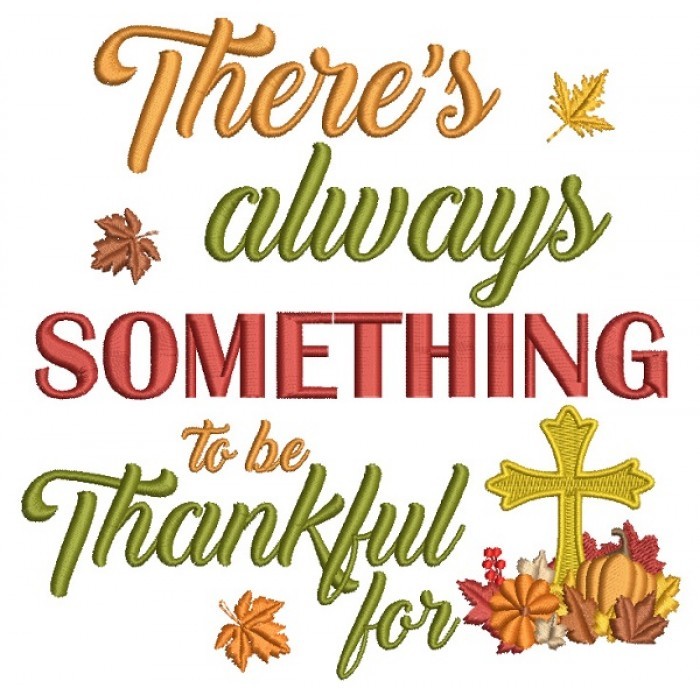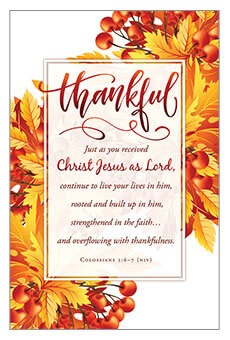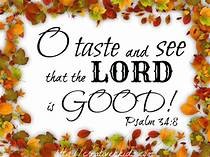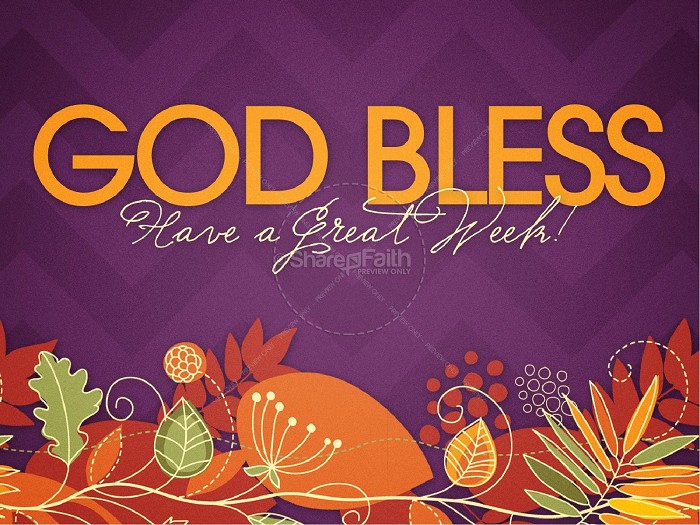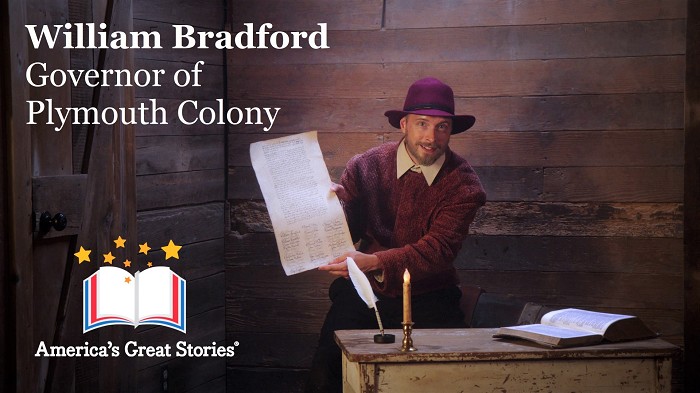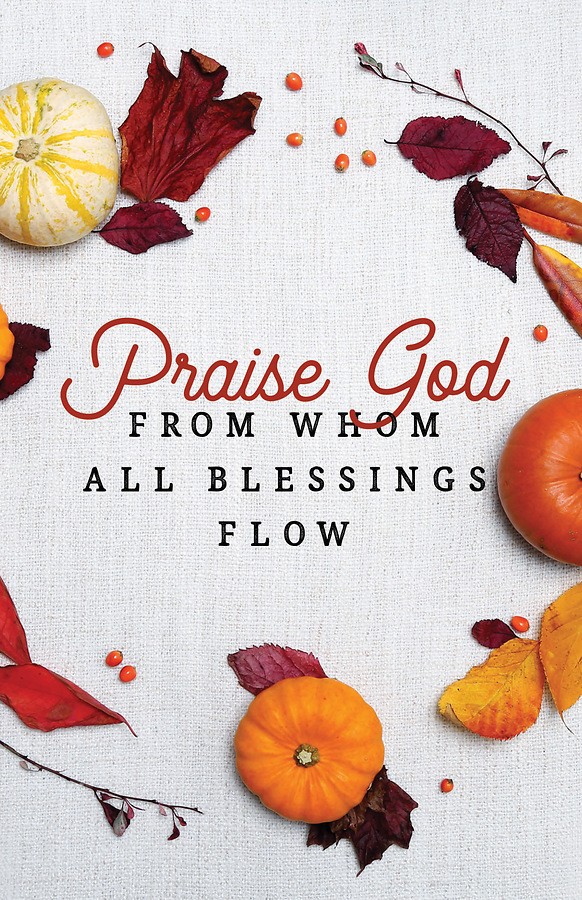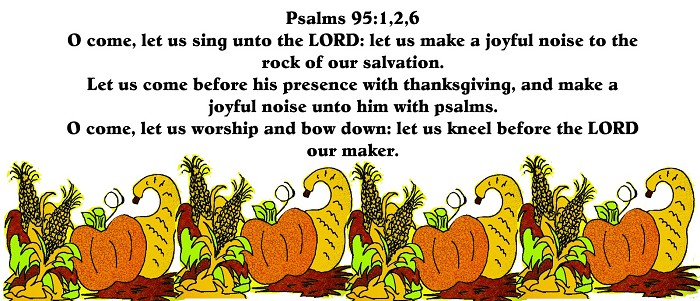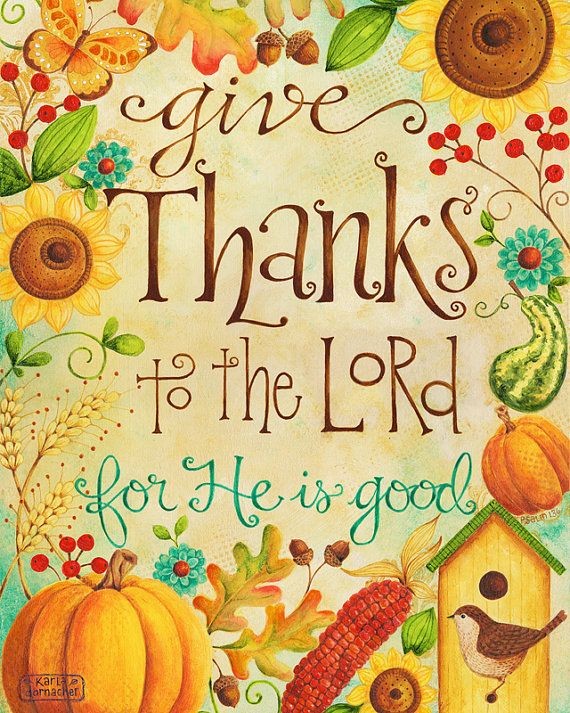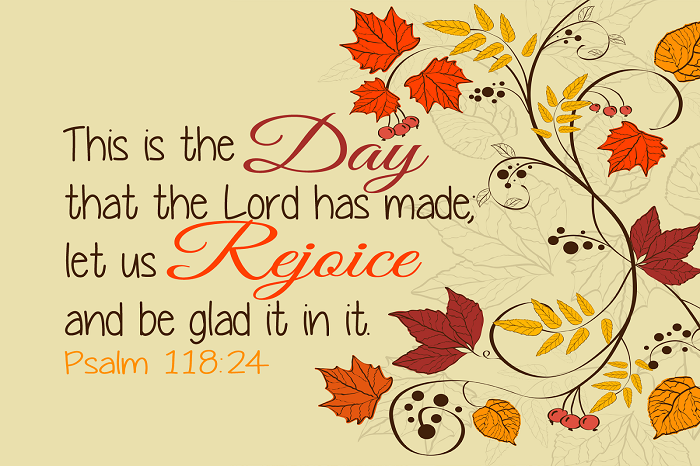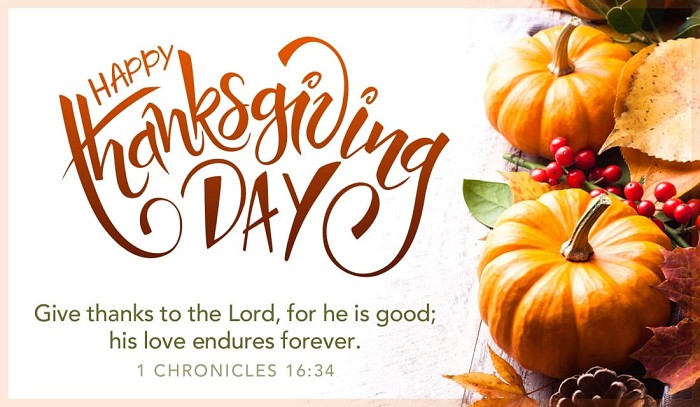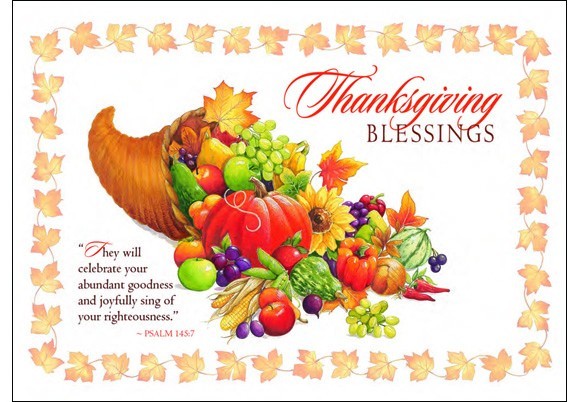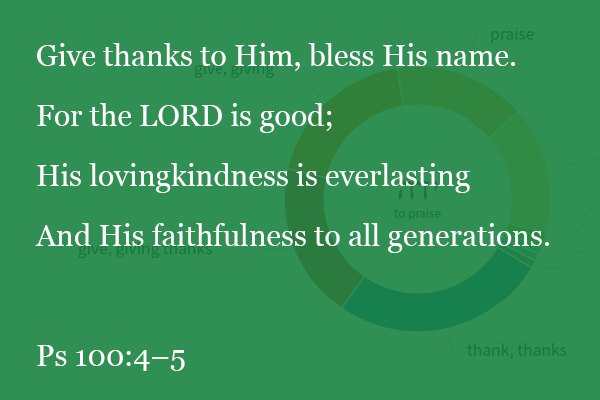|
Thanksgiving 13 examples of thankfulness in the Bible
Here’s a list of biblical examples of people showing gratitude. 1. David thanks God for his kingdomBefore becoming king of Israel, David was a wanted man. The current king Saul was threatened by David’s popularity with the people, and hunted David across the countryside. However, God delivered David from Saul and all his enemies, and made David the king of Israel. Under David’s leadership, Israel’s influence expanded greatly. David became a high king, with the surrounding nations acknowledging him as their ruler. After Saul’s death, David sings a song of praise to God, which includes this line near the end:
The Hebrew for “praise” here actually means an expression of thanks to God. 2. David thanks God for wealth (while giving it back to God)You probably know that Solomon was the king of Israel who had the privilege of building a temple to the Lord in Jerusalem. (That’s why it’s called “Solomon’s temple.”) It was a magnificent, magnificent building. But Solomon didn’t design it: that honor goes to David. Before he died, David made plans for a great temple in Jerusalem. Those plans included a massive fundraising campaign to collect gold, silver, jewels, and supplies for building the temple. That fundraiser was wildly successful: the leaders of the people gave generously—even out-giving David himself! David was overjoyed. In response to his people’s generosity, he gave a prayer of thanks to God which includes this tidbit:
3. The psalmist thanks God for salvationIn the 118th Psalm, the psalmist calls all the people to give thanks to the Lord, then launches into a testimony of how God delivered him (or her) from disaster.
4. The psalmist thanks God for his lawsPsalm 119 is the crown jewel of the psalter: a long, long ode to the Torah. The psalmist writing this piece extols God’s laws over and over and over again, including in the 62nd verse. Here, the psalmist is proclaiming his dedication to the laws of the Lord. He goes so far as to say he wakes up in the middle of the night to thank God for his laws:
5. Daniel thanks God for wisdom and powerFew characters in the Bible are quite like Daniel. This young man of royal blood was captured in Judah before Jerusalem was destroyed, and taken away to Babylon. Daniel resolves to be faithful to God and his laws, while also striving to seek the good of the city he lives in (Jer. 29:7). Early in the book of Daniel, King Nebuchadnezzar has a troubling dream. He cannot understand it, and demands that the magicians and wise men of Babylon explain it to him. Nobody can except Daniel—who understands that this wisdom is given to him from God:
Daniel is not only given wisdom, but great influence as well. For interpreting the king’s dream, Daniel is made the ruler of all Babylon’s wise men. 6. The healed leper thanks JesusDuring Bible times, leprosy was a serious problem. A leper had to live outside the community of people, as they were “unclean.” Lepers were disgraced outcasts in Jewish society. But when 10 lepers happen upon Jesus, they call out to him for mercy. Jesus heals them all, but one thanks him for doing so. The twist: the thankful man is a Samaritan! Even after being cleansed of his illness, he was still someone that the religious Jews would see as an outsider. Yet he still comes to Jesus, a Jew, and thanks him.
7. Jesus gives thanks before mealsJesus “gives thanks” before both miraculously feeding multitudes and announcing the New Covenant at the Last Supper.
8. Jesus thanks God to demonstrate his authorityRight before raising Lazarus from the dead, Jesus thanks God for hearing him. (Though he says it for the benefit of those watching the miracle take place.)
9. Tertullus thanks Felix for peaceful governanceWhen the Jews try to kill Paul, a Roman commander sends him to the governor to have the case examined. The Jews try to frame Paul as a troublemaker, and bring Tertullus, a lawyer, to plead their case. Tertullus’ strategy is to thank the governor, Felix, for a period of peace. He then accuses Paul of disturbing that peace that Felix has maintained.
What a suck-up. But still, if your local political leaders are doing a good job in your community, consider sending them a letter of thanks. Their interns will enjoy reading it. 10. Paul gives thanks to God for bread and safetyPaul’s ship is about to be wrecked, and everyone aboard knows it. However, Paul assures them that nobody will perish in the accident. He encourages everyone to eat a meal so that they have enough energy to swim for shore. Before breaking bread, he thanks God in front of all the passengers and begins to eat. His shipmates are encouraged, and eat as well.
11. Paul thanks God for Christian fellowship in RomePaul is greeted in Rome by a group of brothers and sisters who traveled to welcome him to the city. When he sees these people, he expresses gratitude to God.
12. Paul thanks God for Christian church members and friendsPaul thanks God for the Romans (1:8), the Corinthians (1 Cor 1:4), the Ephesians (1:16), the Philippians (1:3), the Colossians’ faith (1:3), the Thessalonians (1 Thess 1:2; 2:13; 2 Thess 1:3; 2:13), and Philemon (4). He especially calls out Priscilla and Aquilla, who risked their lives for him. Paul says that all churches of the Gentiles are grateful to them (Ro 16:3). 13. Paul thanks God for spiritual giftsOK, technically Paul thanks God that he speaks in tongues (more than the Corinthians, BTW). But even though tongues is a terrific gift from God, Paul notes that it’s not as useful as intelligible instruction.
|
||||||||||||||||
|
|
|
Copyright © 2025 Immanuel Church of Lincoln. All Rights Reserved.

